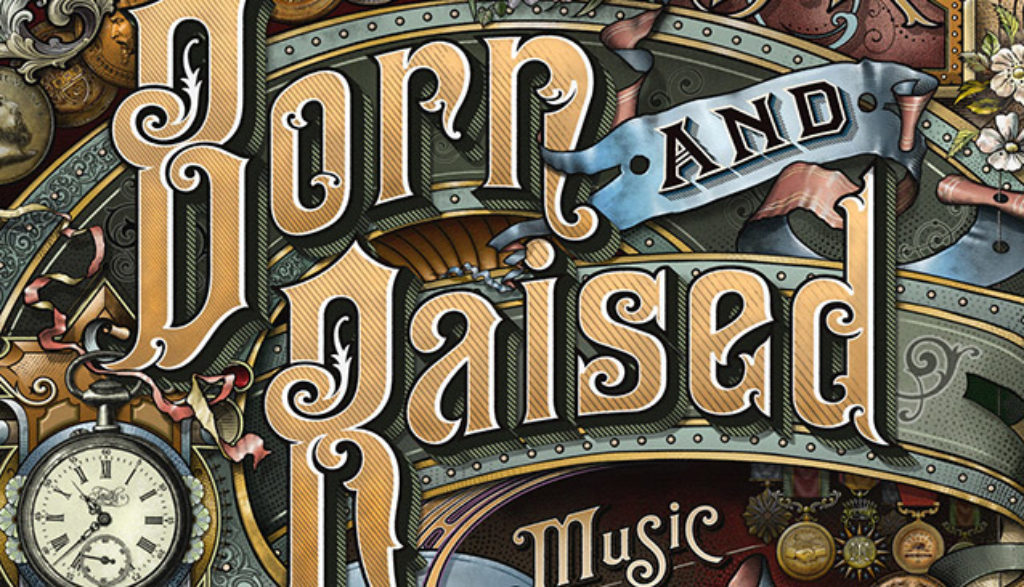
When last we took notice of John Mayer in 2010, it wasn’t really because of his music. Instead, it was to listen to the sometimes over-earnest singer/songwriter defend himself after making racy, eyebrow-raising comments about high-profile exes Jessica Simpson and Jennifer Aniston. Since then, Mayer’s mostly kept his promise to refrain from brain-dumping unexpurgated thoughts online or in interviews.
But that doesn’t mean he hasn’t been thinking. His fifth album, a folksy acoustic effort that would have sounded right at home alongside Joni Mitchell or the Grateful Dead in the late ’60s or early ’70s, indicates he’s been thinking quite a lot, in fact. About his life. About his mistakes. About his struggle to commit. And about his desire to be a better man.
Album opener “Queen of California” establishes the emotional tenor: “Good-bye cold/Good-bye rain/Good-bye sorrow/Good-bye shame.” As the songs that follow will illustrate, Mayer’s spent plenty of time slogging through shame, and he’s decided it’s time to quit beating himself up.
“The Age of Worry” rejects our society’s tendency at times to bog down in anxiety. Echoing biblical admonitions, Mayer sings, “Alive in the age of worry/Smile in the age of worry/ … And say, ‘Worry? Why should I care?'” The song also counsels a realistic assessment of one’s hopes and weaknesses (“Dream your dreams but don’t pretend/Make friends with what you are”).
The title track ponders the passage of time and the sobering reality that the consequences of our choices are ultimately inescapable: “And all at once it gets hard to take/It gets hard to fake what I won’t be/’Cause one of these days/I’ll be born and raised/ … And it all comes on without warning.” The song also looks hopefully to the future and the prospect of making different, wiser decisions (“I still got time, I still got faith”) even as it reflects on the value of family (“I call on both of my brothers”) and the heartbreak of divorce (“I got a mom, I got a dad/But they do not have each other”). In similar territory, Mayer admonishes himself on “If I Ever Get Around to Living,” “When you gonna wise up, boy?/ … I think you better wise up, boy.”
Lead single “Shadow Days,” allegedly penned as a “farewell letter” to Jennifer Aniston, admits to making mistakes (“Did you know that you could be wrong/And swear you’re right?/ … I never meant her harm/But it doesn’t mean I didn’t make it/Hard to carry on”), describes how brokenness leads to a clear perspective (“I found myself in pieces/On the hotel floor/Hard times help me see”) and expresses Mayer’s desire to do better (“I’m a good man with a good heart/ … And I’m hoping, knowing somehow/That my shadow days are over”). “Love Is a Verb” recognizes that for love to be real it must be demonstrated in action. “A Face to Call Home” finds comfort and security in a romantic relationship built on mutual acceptance.
“Whiskey, Whiskey, Whiskey” laments an empty pattern of drinking to try to deal with loneliness: “Whiskey, whiskey, whiskey/Water, water, water/Sleep/ … Wake up/And repeat.” Then it hints it’s a habit he wants to break: “It’s just a phase/It’s not forever/ … But I still have a ways to go/ … Whiskey, whiskey, whiskey/Cut me off and pour me in the street.” “Speak for Me” longs for freedom and wholeness.
On “Shadow Days,” we hear, “Well it sucks to be honest/And it hurts to be real/But it’s nice to make some love/That I can finally feel.” On the playful “Walt Grace’s Submarine Test, January 1967,” a much-maligned man leaves his wife and family behind to pursue his dream of building a submarine.
John Mayer, who’s been romantically linked to a long list of celebrity lovers, has taken a long look in the mirror—and he isn’t sure he likes what he sees. He’s started longing for something more that well-publicized trysts with beautiful blondes. At least that’s what comes across in these songs.
Cynics might be tempted to suggest that Mayer’s contrition and confession here are merely self-serving and self-absorbed. But he seems sincerely aware of the effects of the passage of time and the reality that each decision helps shape a person’s destiny. The title track, especially, gets at the idea that one day we will wake up to full weight of the collective influence of those decisions—for better or worse.
Or, put more simply, like the Bible does, that we eventually reap what we sow. The good news here is that the singer repeatedly says he wants to do better in the future than he’s done in the past.

After serving as an associate editor at NavPress’ Discipleship Journal and consulting editor for Current Thoughts and Trends, Adam now oversees the editing and publishing of Plugged In’s reviews as the site’s director. He and his wife, Jennifer, have three children. In their free time, the Holzes enjoy playing games, a variety of musical instruments, swimming and … watching movies.